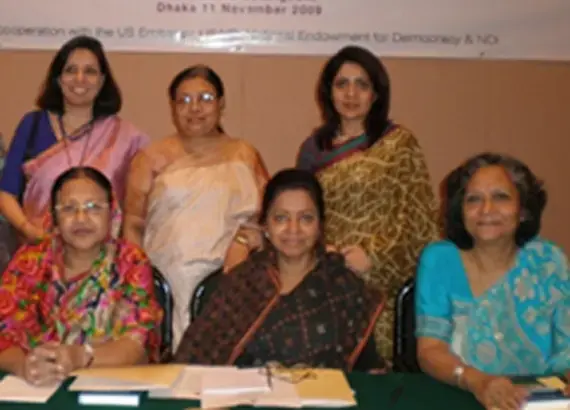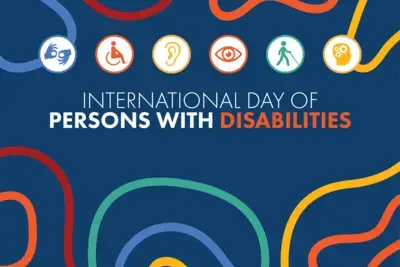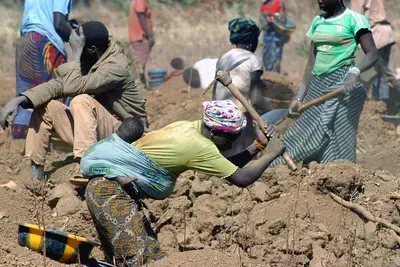
Success Story
"From Kitchen to Parliament" - Women in Bangladesh Look Toward the Future
In Bangladesh, traditional gender roles keep most women from gaining political power. A recent forum, "Celebrating Women's Leadership in Bangladesh," brought together female MPs and other Bangladeshi women with political aspirations to inspire and encourage them to run for office and to work together across party lines to increase women's political participation in the country.
The Bangladesh Alliance for Women Leadership (BDAWL), an organization of prominent women leaders, hosted the November meeting, which was prompted by a visit to Bangladesh from Melanne Verveer, U.S. Ambassador-at-Large for Global Women's Issues. Forty-five women MPs, civil society leaders, media representatives, and officials from the U.S. embassy, NDI and BDAWL attended the forum.
"From Kitchen to Parliament"
Excerpted from Rumana Iqbal Mahmud's speech
"My support for my husband's campaign was not only being seen at the rallies and meetings, but also when he came home and shared the ups and downs of politics and many other important matters with me. I became his political partner.
"While my husband held his meetings outside I often held meetings in my home with constituents who needed help and support, had things to ask for and were looking for help. My face became known to these constituents and theirs to me as we built a special relationship over my kitchen table. When the elections were held and my husband joined the cabinet, these home visits by constituents in need became greater and consequently my engagement with them became much more active, albeit, a great deal of it from behind the curtain of my kitchen.
"When the test for this special relationship came, I was the winner. Voters remembered me from the days of my kitchen meetings. Their love and affection made all the difference as I traveled the path less known to Bangladeshi women.
"Although many Bangladeshi women like me give much needed support to the political process — as can be witnessed in rallies and meetings where women are the front liners — most don't even consider joining political parties and the process formally. The hindrances they encounter, the challenges that lie on the path, and the social mindset that is changing ever so slowly, discourages women from stepping forward to run.
"That is why I congratulate the Bangladesh Alliance for Women Leadership for taking up the challenge to instill the thought in all of us: 'together we win.' The Alliance did a great job in advocacy prior to the elections and has done so much in only a year."
Though the December 2008 parliamentary elections marked progress for women's political leadership in Bangladesh, women hold only 6 percent of 300 constituency-based seats in parliament and many are wives or relatives of male politicians who previously held the seats. In addition, while the parliament has 45 reserved seats for women appointed by the political parties, women parliamentarians are often marginalized and are not viewed as credible politicians because of their appointive status. They have not the opportunity to acquire the core skills and knowledge necessary to be effective parliamentarians.
BDAWL saw the ambassador's visit as an ideal opportunity for civic leaders to come together to discuss how civil society organizations could better support elected women representatives. The ambassador's visit also prompted BDAWL to encourage the women parliamentarians in its membership to form a multi-party women's caucus in the parliament to focus on key issues of importance to women. As a founding partner of BDAWL, NDI helped organize the meeting and continues to work with BDAWL and Bangladeshi MPs in the formation of a women's caucus.
The event kicked off with a speech from Rumana Iqbal Mahmud, one of the 64 women in parliament. The talk detailed her climb from housewife to MP and how she became interested in politics as she stood by her husband's side when he campaigned for a seat in parliament. Listening to her husband hear constituents' concerns, Mahmud became impassioned by politics, and when her husband was appointed to the cabinet, she mounted her own campaign for parliament and won.
In her address to the group, Ambassador Verveer noted the correlation between increased investment in women and economic prosperity, political stability and reduction of corruption in society. She urged the women to cooperate to set priorities in health, economics, education and other issues of importance to women's socio-economic and political progress.
The meeting ended with a discussion of the need to establish a multi-party women's caucus and a vow by attendees to move the process forward in the coming year. The caucus' goal will be to help women MPs develop benchmarks to measure activity and progress on women's legislative issues and to cooperate across party lines on issues of importance to women. BDAWL, with NDI support, will help a core group of women political leaders outline a caucus charter.
BDAWL was formed in 2008 with assistance from NDI to promote women's leadership across all sectors of Bangladesh society. Founding members include representatives from business, academia, civil society organizations and parliamentarians from the major political parties. The first organization of its kind in Bangladesh, BDAWL has been working with great speed to raise awareness about the need for greater engagement by women in political decision-making.
BDAWL continues to promote women candidates from major political parties seeking election to parliament and led the first-ever parliamentary orientation program for women MPs. This included a comprehensive examination of gender issues within the annual budget approved by parliament. BDAWL also conducted workshops on women's caucus development, advocated in the media and international forums for women's empowerment, and held speakers forums on women's empowerment.
Pictured above:Members of BDAWL and its executive committee
Published on March 9, 2010



